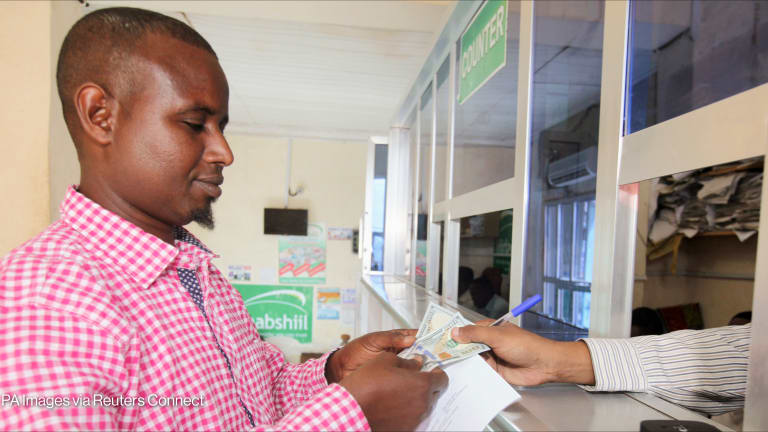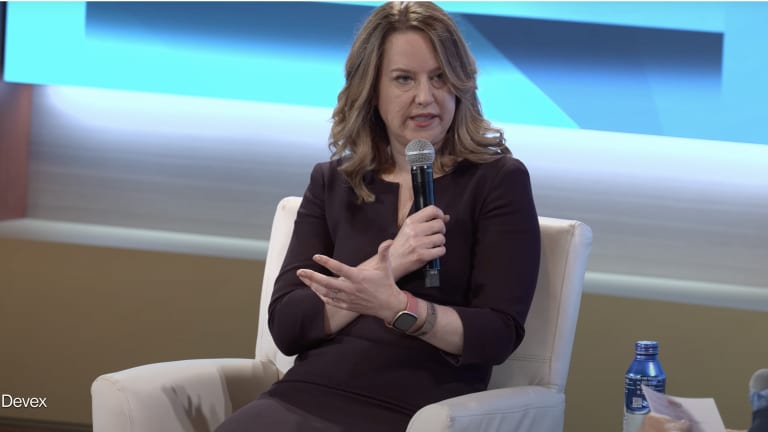
Foreign aid budgets may be in trouble from Rome to Washington, but the flow of remittances to the developing world remains strong. No wonder, then, that money transfer companies like Western Union are at the heart of efforts to engage diaspora in the long-term development of their homelands.
In a program started in 2005, for instance, Western Union matched every dollar raised by Mexican hometown associations in the United States for economic and community development projects south of the border, creating at least 4,000 jobs. The company is now exploring ways to boost secondary education and vocational training as a way to improve economic opportunity for the youth.
One of Western Union’s latest ventures is a partnership with the United Nations Development Program, which will pool funds sent by migrant workers and channel them to livelihood improvement and entrepreneurship projects of their families back home. The initiative is being piloted in Morocco and the Philippines.
Talya Bosch, director of social ventures at Western Union, says the program will create new channels for diaspora communities to come together and target very specific schemes for economic development.
Bosch helped conceive and implement Western Union’s “Our World, Our Family” program, an award-winning five-year, $50 million social responsibility commitment that began in 2007. Donors should allow diaspora help drive the development agenda and offer matching funds for remittances, the CSR expert told Devex in a recent email. Here are some excerpts:
What do you think have been the barriers to a wider and more coordinated use of remittances for development?
Diaspora communities … are really very generous. But I think that some of the challenges have been having clear mechanisms to get money where it needs to go, and also clear consensus about what community priorities should be. …
There are times, very understandably, that communities will focus on something like a rodeo ring or a new corral – you know, that type of thing – which can bring people together, and is a point of pride for the community. But that won’t necessarily create economic development. And so I think that building consensus and having clear ways for diaspora communities to engage will be extraordinarily helpful.
Based on Western Union’s experience, what’s the singular, most important contribution of remittances to development?
What we’ve seen time and again, it’s about job creation.
People want to be able to provide for themselves – they really do. They don’t want to have to rely on development organizations over the long term. Clearly, there’s a critical need for stop-gap efforts in health, in housing and a variety of other areas. Over the long term, if people have jobs that pay them a fair wage, they can buy their own health care, they will ultimately build their own houses according to their own desires and preferences. That’s part of why we think of remittances as profoundly democratic, because they put power in the hands of people who receive the money.
Many effective programs look for ways to foster financial literacy on the part of both remittance senders and remittance receivers. That can help people find ways for money to be better used and create jobs so that people, again, can provide for themselves. Those are some of the best ways, I think, to reduce poverty.
Bill Gates suggests lowering transaction costs for remittances as a way to mobilize financing for development. Have there been dialogues and initiatives between the business sector including Western Union and the aid community on moving forward with this proposal?
We’ve heard about this kind of question over the years from the World Bank and others. The cost has actually fallen quite a bit over the past 10 years for a variety of reasons: Competition is one, and technology is certainly another.
If you look … at what microfinance organizations charge, their loan rates are at 30 percent, 60 up to a hundred percent. And you know, remittances on average are what – maybe 5, 6 or 8 percent of capital in many major corridors? Personally, I would say – and this is just my own perspective, not an official statement – that remittances are a bargain compared to microfinance.
I think some of the data that is driving the discussion may be a little bit dated; it doesn’t necessarily take into account the full picture of options and the benefits to having a remittance system that is an official channel in where there’s compliance, covered by laws and regulations, and where there’s a degree of transparency and reliability, which informal channels don’t provide. I think it’s important to look at money transfer in the context of the whole financial ecosystem and take a look at what’s really happening today, and the tremendous potential for the future.
Hear Talya speak at the Social Innovation Summit 2012.
Read more:








